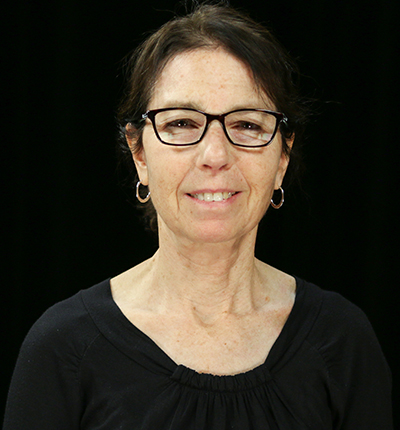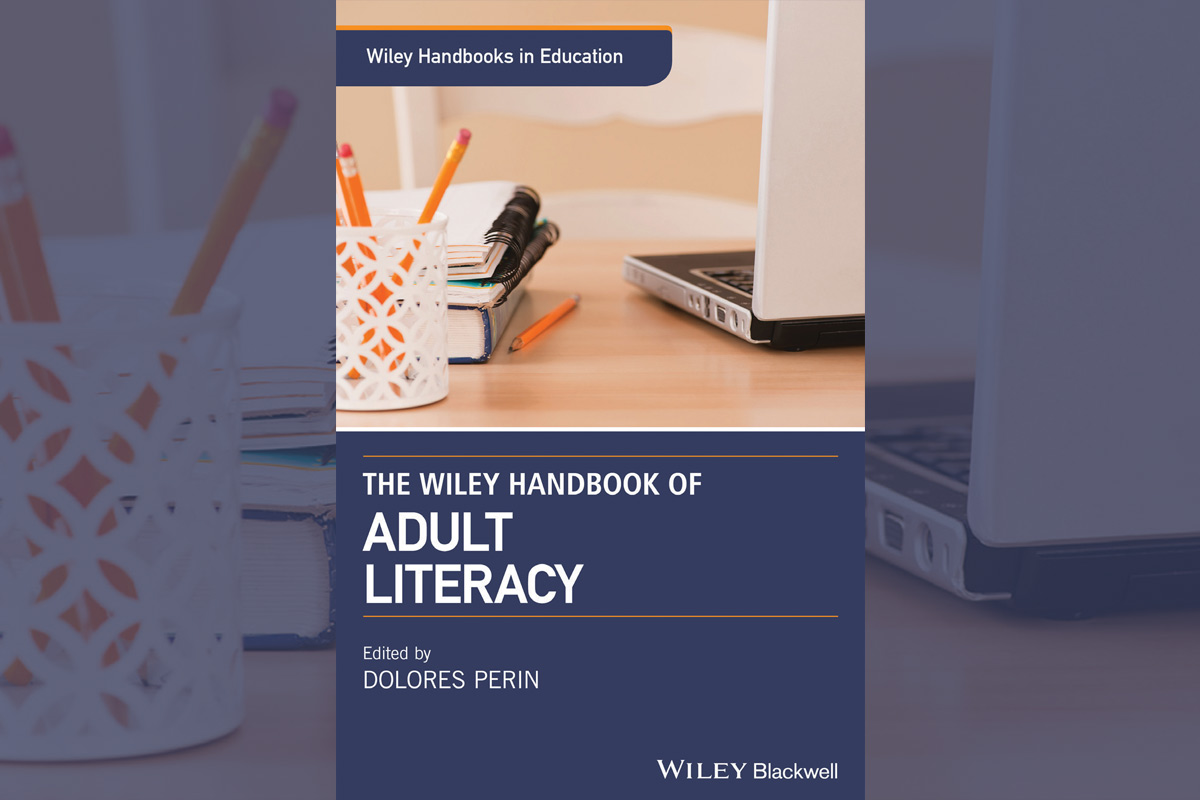With an estimated 750 million adults worldwide classified as lacking literacy skills, the effort to improve reading and writing skills among adults has been limited by its own inability to read between the lines.
That, in essence, is a central premise of The Wiley Handbook of Adult Literacy, edited by Dolores Perin, Professor of Psychology & Education and Director of TC’s Applied Education Psychology: Reading Specialist Program.

Dolores Perin, Professor of Psychology & Education (Photo: TC Archives)
Contributors to the book, which is aimed at researchers, teacher educators, curriculum and professional developers, address topics ranging from how words are structured to the teaching of literacy skills in prisons, to literacy and social change in South Asia. Yet perhaps the volume’s most distinguishing feature is that it links three seemingly disparate three groups: adults with low reading skills (typically those who haven’t finished secondary education and may not be native English speakers); students who enter community colleges with low literacy skills; and higher-skilled adults (including some in graduate school) who have dyslexia.
[Cick here to learn more about Perin’s book. Register for an online book talk featuring a panel of some of the authors of chapters in the newly-published Wiley Handbook of Adult Literacy. The panelists will speak about their chapters and answer questions from attendees. The online book talk will take place on Thursday, October 10th, at 3:30 p.m. Eastern time.]
Perin justifies her approach on two grounds. The first is technical: “A large proportion of people in each of these populations have a problem with awareness of phonemes, which are the smallest unit of sound that we can appreciate. That issue is a real drag on their ability to make reading automatic.”
Higher-skilled people with dyslexia may appear to be functioning well, but often they are subject to severe difficulty and stress because reading and writing tasks that are easy for others are extremely effortful for them – they may have to work eight times as hard.
—Dolores Perin
The second is contextual: People in each group have low literacy skills in relation to the specific tasks that confront them: “Higher-skilled people with dyslexia may appear to be functioning well, but often they are subject to severe difficulty and stress because reading and writing tasks that are easy for others are extremely effortful for them – they may have to work eight times as hard.”
The handbook also includes reports on new and effective interventions. In one study, Roma adults in Portugal who were considered “fully illiterate” learned to read in just three months, thanks to a phonics technique. Another study focuses on the use of intelligent tutoring systems to teach reading comprehension skills.
Many of the researchers who contributed to the book also subscribe to the principle of andragogy (championed by, among others, Teachers College faculty member Stephen Brookfield), which holds that, regardless of their skill level, adults must be taught in a way that is tailored to practical aims, using content and vocabulary that are authentic to the topic.
Unfortunately, there’s this idea, at least in the United States, that when people have been through 12 years of school but have low literacy skills, it’s their own fault, and society shouldn’t have to pay for them twice. The result is that there isn’t much funding for these populations, which is disgraceful.
—Dolores Perin
Perin says her book is the first she’s aware of to link adults with similar patterns of literacy but in three populations that are studied separately (adult literacy students, low-skilled college students, and adults with dyslexia) – an advance she considers long overdue.
“It would be really beneficial if, in the future, research combines and compares these populations to develop appropriate interventions,” she says. “Unfortunately, there’s this idea, at least in the United States, that when people have been through 12 years of school but have low literacy skills, it’s their own fault, and society shouldn’t have to pay for them twice. The result is that there isn’t much funding for these populations, which is disgraceful.” Perhaps this handbook will stimulate new avenues of research that will benefit all three populations.
